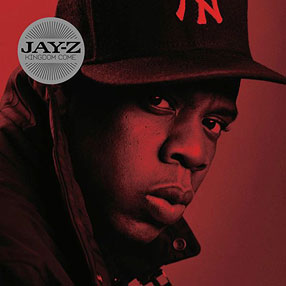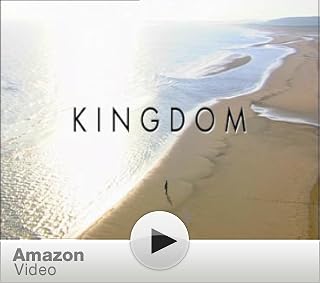List of forms of government Direct democracy Representative democracy Absolute monarchy Constitutional monarchy Mixed government Constitutional republic Parliamentary republic Socialist republic Capitalist republic A
monarchy, from the
Greek μονος, "one", and
αρχειν, "to rule", is a
form of government in which a monarch, usually a single person, is the
head of state.
In most monarchies, the monarch holds their position for life (in some republics the head of state, often styled
president, also remains in office for life, but in most is
elected for a term of office, after which he or she must step down). There are currently 31 monarchs reigning over 45 extant sovereign monarchies in the world; the disconnect in numbers between monarchs and countries is explained by the fact that the sixteen
Commonwealth Realms - vast geographic areas including the trans-continental realms of
Canada and
Australia - are separately reigned over in
personal union by one person, and one other monarchy,
Andorra, by two non-resident (French and Spanish) co-monarchs.
The term monarchy is also used to refer to the
people (especially the
dynasty, also known as
royalty) and institutions that make up the royal or imperial establishment, or to the
realm over which the monarch reigns.
Monarchs serve as
symbols of
continuity and
statehood. Today, the extent of a monarch's actual powers varies from monarchy to monarchy. In constitutional monarchies, wherein
sovereignty rests formally with the crown but politically with 'the people' (usually the electorate, as represented by a parliament), the monarch now usually serves largely ceremonial functions, except in times of crisis. Many monarchies are constituted by tradition or by
codified law, so that the monarch has little real
political power; in others the monarch holds some power but is limited from exercising it by popular or precedential opinion; in still others the monarch holds substantial power and may exercise it without limit.
Monarchy is one of the oldest forms of government, with echoes in the leadership of
tribal chiefs. Many monarchs once claimed to rule by
divine right, or at least by divine grace, ruling either by the will of the god(s) or even claiming to be (incarnated) gods themselves; cfr.
theocracy. Monarchs have also been selected by
election (either in a broad popular assembly, as in Germanic tribal states; or by a small body, such as in the
Holy Roman Empire; or by
dynastic succession; or by
conquest as in Malaysia and the UAE; or a combination of any number of ways). In some early systems the monarch was overthrown or sacrificed when it became apparent that
divine sanction had been withdrawn.
Since
1800, most of the world's monarchies have been abolished by dismemberment or annexation, or have been transformed into republics; most current countries that are monarchies are
constitutional ones. Among the few states that retain a rather
absolute monarchy are
Bhutan,
Brunei,
Oman,
Qatar,
Saudi Arabia,
Swaziland and the
Vatican City (the papal city-state, an electoral
theocracy). In
Jordan and
Morocco, the monarch also retains considerable power. There are also recent (
2003) developments in
Liechtenstein, wherein the regnant
prince was given the constitutional power to dismiss the government at will.
Nepal had several swings between constitutional rule and
direct rule related to the
Maoist rebel movement and killings by a suicidal
crown prince.
Anarchism Aristocracy Authoritarianism Autocracy Communist state Democracy Despotism Dictatorship Fascism Feudalism Hierocracy Kleptocracy Kritarchy Krytocracy Meritocracy Monarchy Ochlocracy Oligarchy Plutocracy Republic Single-party state Thalassocracy Theocracy Timocracy Totalitarianism Tyranny Types of Monarchy The rules for selection of monarchs varies from country to country. In constitutional monarchies the rule of succession is generally embodied in a law passed by a representative body, such as a
parliament.
Elective monarchies, distinguished by the monarchs being appointed for life, have in most cases been succeeded by hereditary monarchies, but both secular sovereign nation cases at present - those of
Malaysia and the
United Arab Emirates - are 20th-century creations. In the hereditary system, the position of monarch involves inheritance according to an
order of succession, usually within one
royal family tracing its origin back to a historical
dynasty or bloodline. In some cases the ruling family may claim to hold authority by virtue of the associated god's choosing, as reflected in the style-phrase "
by the Grace of God," or other religion-based authority.
The
order of succession in most European monarchical states of the
21st century is by
primogeniture, meaning that either the eldest child of the monarch or the eldest son of the monarch is first in line. Currently, there is some controversy over the succession laws of some monarchies such as that of the
United Kingdom (UK),
Canadian, or the
Scandinavian monarchies, which require their monarch to be of a certain faith (in the Commonwealth Realms under the
Act of Settlement 1701). This has been challenged as violating
European Union rules that prohibit
religious disqualification for positions of state authority, as well as a violation of the Canadian
Charter of Rights and Freedoms.
Historically, successions in dependent states could be subject to the assent of the (colonial or other) dominant power, which then often reserved the right to dethrone (and replace) a 'disloyal' incumbent.
 Succession
Succession Official styles and titles of monarchs often reflect the ambitions and ideals of the governments they head or represent and actual historical ties or claims to territories no longer under their administration or even extinguished as political units.
Some titles are specifically designed to express a relative rank, usually higher if self-assumed, as in the case of
King of Kings and various equivalents, or Tipu Sultan who assumed the rank
Padshah Bahadur when declaring his new Muslim empire Khudadad independent from the
Mughal Padshah, it has no other meaning then 'in rank above Padhsah'. Some monarchic titles suggest a unique exalted rank, even universal supremacy, such as the
Caliph, and yet there may be parallel dynasties, e.g. a branch of the
Umayyad in Cordoba while the Oriental caliphate had been take over by the
Abassids (in Baghdad). Other titles are perceived as carrying a protocolary rank, so granting (often as a reward for a loyal vassal) or assuming (as an assertion) a higher title can mean a 'promotion' regardless of political reality.
Additional elements in the full style may refer to the legitimation of the throne, either directly as by a phrase like "
by the Grace of God," or indirectly by referring to a legitimating function, such as protecting the official religion, e.g. for a Muslim ruler by the style
Commander of the faithful. The Protestant Successors to
Henry VIII of England have all retained the "
Defender of the Faith" originally granted by the
Pope to
Henry VIII Tudor before the 'annulment crises' lead to the
Anglican Schism.
Queen Elizabeth II is "by the Grace of God, Queen" in fifteen of her sixteen realms, only
Papua New Guinea omitting this phrase from her title there. During Spain's transition to a constitutional monarchy under
Isabella II, her Style was changed from the 'Long Form' which included "by the Grace of God" and some 20 states to "By divine grace and the constitution, queen of the Spains".
The kings and queens of England and Great Britain retained the title King of France until the union with Ireland to form the United Kingdom in 1801, during the reign of
King George III. The kings and queens of Spain retained a long list of kingdoms, that didn't include Spain until Isabella II in 1837. The Council of Ministers (1987) authorized
Juan Carlos I, King of Spain, to also use "historical titles," presumably including the crusader relict King of Jerusalem.
Titles as Political Statements Monarchies can come to an end in several ways. There may be a
revolution in which the monarchy is overthrown; or, as in
Italy, the electorate decides to form a republic by constitutional
referendum. In some cases, as with
England and
Spain, the monarchy has been overthrown and later restored. After the abdication of Napoleon I, which ended the
First Empire, the French restored the royal Bourbon dynasty which had been abolished by the republic within which Napoleon had established the Empire. At the same time, his emperorship was "revived" outside
France, as a "golden cage" principality was created for him on the island of
Elba, so in a sense the empire was succeeded by a kingdom and an emperor without an empire.
Dependent monarchies have been abolished by their dominant power, often for the purposes of being fully annexed, split or merged with another. In
Uganda, for example, local tribal monarchies were abolished when the country became a
unitary state.
The most recent monarchy to be abolished was the former
Commonwealth Realm monarchy of
Mauritius in 1992. In 1999 Australians voted to keep their status as a monarchy under Queen Elizabeth II.
Countries may regard themselves as monarchies even without an actual monarch on the vacant throne, as
Spain did from
1947 to
1975, and
Hungary from
1920 to
1946.
A person who can be taken into consideration as future monarch in case of restoration of monarchy (or who even claims to be the legitimate heir to the throne of a deposed or in the royalist view suspended monarchy) is called a
pretender, but that term also applies to a rival claimant of a filled throne, such as the several Russians who claimed to be a
Tsar simultaneously.
See also
abolished monarchy for a list of recently-abolished monarchies.
Demise of monarchies Sometimes, component members of federal states are monarchies, even though the federal state as a whole is not; for example each of the emirates that form the
United Arab Emirates has its own monarch (an
emir). Another unique situation is
Malaysia, in which the federal king, called the
Yang di-Pertuan Agong or Paramount Ruler, is elected for a five year term from and by the hereditary rulers (mostly
sultans) of nine of the federation's constitutive
States, all on the
Malay peninsula.
In addition to his ecclesiastical role as Supreme Pontiff of all Christians worldwide in communion with the Bishop of Rome, the
Pope is
ex officio the absolute monarch of
Vatican City, the last truly sovereign
Prince of the Church. He is elected by (and customarily from among) the
College of Cardinals. (Since the Catholic episcopate is celibate, naturally there can be no official hereditary succession to the papal throne.) Notwithstanding this, the papacy has at times been under the control of powerful Italian families. Several popes have been succeeded by near relatives (officially described as
Nepotes, literally 'nephews').
Andorra is the world's only co-principality: it had two co-princes: the Bishop of
Urgell in Spain (thus a
Prince-Bishop), and the
President of France—a unique case where an independent country's Monarch is democratically elected by the citizens of another country, which is not even in full
personal union.
Since 1947, the
Emperors of Japan have reigned as neither
sovereign, nor the
de jure head of state.
Emperor Hirohito having ceded sovereignty to the people shortly after World War II, the Japanese monarchy is bound by
supreme law as opposed to
constitutional convention under the provisos of the
Constitution of Japan.
Unusual Monarchies Early societies may become oligarchies as an outgrowth of an alliance between rival tribal chieftains or as the result of a caste system. Oligarchies can often become instruments of transformation, by insisting that monarchs or dictators share power, thereby opening the door to power-sharing by other elements of society (while oligarchy means "the rule of the few," monarchy means "the rule of the one"). One example of power-sharing from one person to a larger group of persons occurred when English nobles banded together in 1215 to force a reluctant King John of England to sign the Magna Carta, a tacit recognition both of King John's waning political power and of the existence of an incipient oligarchy (the nobility). As English society continued to grow and develop, the Magna Carta was repeatedly revised (1216, 1217, and 1225), guaranteeing greater rights to greater numbers of people, thus setting the stage for English constitutional monarchy.
Oligarchies may also evolve into more autocratic or monarchist forms of government, sometimes as the result of one family gaining ascendancy over the others. Many of the European monarchies established during the late Middle Ages began in this way.
Monarchy and Oligarchy Arguments for and against monarchies Monarchists rely amongst others to the following arguments:
A (future) monarch is considered as more competent for the office than an elected president because of his possibility to be prepared from childhood on.
A monarchy can be lower-cost than a republic because of missing presidential elections and the fact the familial fortune may suffice to supply the imperial/royal family so that additional official benefits can be economized (in contrast to the republican system in which imcumbent
and former presidents have to been paid domicile, pension, bureau and official car by the exchequer).
Presidential elections expose future Head of states to the habitual competition during periods of election campaigns. Monarchists consider this as very damaging for the reputation of a Head of state.
The fact that a future president normally belongs to a political party is contradictory to a Head of state's function as neutral representative of the country and the people. Only a non-party monarch is seen as able to fulfill this role.
Presidents always have to act accordingly to their party's program and ideas while a monarch can reign independently of certain political directions.
A monarch is seen as a better (visible) symbol of national identity and unity.
The republic is blamed to produce political incertitude because of the permanent change of Head of States while monarchy serves as a symbol of continuity. Some monarchists argue that monarchy doesn't only serve as a symbol but even really guarantees political stability: They justify this point of view with the fact that abolition of monarchy often led to civil wars and the rise of totalitarian systems; for example,
National Socialism in Germany,
Jacobinism in
France,
Communism in
Russia, and
Maoism in
China.
 Arguments against monarchies
Arguments against monarchies Currently 45 nations in the world have monarchs as heads of state, 16 of which are
Commonwealth Realms that formally recognize
Queen Elizabeth II as their head of state and
Prince Charles as heir.
Current monarchies of the world Not only are the Monarchs of constitutive monarchies part of the federal establishment of both present elective monarchies (Malaysia, mainly sultanates, and the UAE, so named after its emirates), in many other modern states -often republics- tribal and other traditional states persist, with a dynasty that retains a court and often local prestige and influence; some are officially installed with the consent of the official government (as some of the many in Indonesia- waiting for the go-ahead can mean years of vacancy on the throne), others are merely condoned, or even in exile.
In many countries that are legally
republics, an heir to the throne is recognized by the royalist part of the
nation. A list of such countries is available in the
pretender article.
See also Australian Monarchy Belgian monarchy British Monarchy Monarchies of Burma Canadian Monarchy List of Danish monarchs Monarchies of Ethiopia Cokossian Monarchy Dutch monarchy Emperor of Japan Indonesian Monarchies King of Ireland Kotokolian Monarchy New Zealand Monarchy List of Nigerian traditional states Norwegian monarchy Datus of the Philippines Monarch of Sweden Tenkodogo Monarchy Wogodogo Monarchy

 Succession
Succession Arguments against monarchies
Arguments against monarchies Legal commentary
Legal commentary

 Reference books
Reference books See also
See also Model
Model Defensemen: 1st team -
Defensemen: 1st team - 
 Governance
Governance